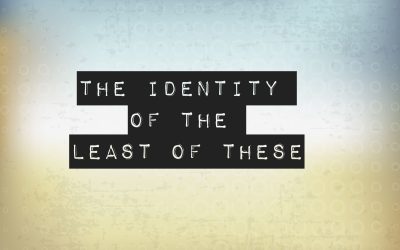Strong Women
In honor of Mother’s Day, many church sermons will be shared this weekend extolling the wonders of that noble, excellent, worthy, or virtuous (depending upon your translation) woman described in Proverbs 31. But I much prefer to be like the other woman mentioned in Proverbs 31. The mighty one. The valiant one. The strong one. What? You haven’t heard of her?
It seems that too many Christians have allowed the feminist movement to define what “strong” means when describing women. We frequently avoid the discussion in the name of dutiful Christian submission. And we often limit our search of God’s word on the subject to superficial explorations from fear of appearing unbiblical. Maybe it’s time for a more in-depth look . . .
The Bible is filled with strong women who were used of God to accomplish His purposes. Tamar, Rahab, Deborah, Ruth, Abigail, Esther, Lydia, and Priscilla are just a few names that come to mind. These women were by no means superwomen, and they certainly were not feminists. Their descriptions included prostitute, judge, pagan, adulterer, queen, and businesswoman. Yet, they all had one thing in common: they clearly understood the role of true strength in their identity as women.
So what does this have to do with Proverbs 31? Stick with me a little longer . . .
Is She Noble or Is She Strong?
Let’s take a look at the use of a Hebrew word from the Old Testament. Chayil is frequently translated as strength. But it is also used elsewhere in Scripture to mean army, wealth, ability, virtue, and valor, among other things. For example:
- “But remember the Lord your God, for it is He who gives you the ability to produce wealth…” (Deuteronomy 8:18).
- “The bows of the warriors are broken, but those who stumbled are armed with strength” (I Samuel 2:4).
But the same word also appears in Ruth and Proverbs to describe women as virtuous or noble:
- “…All my fellow townsmen know that you are a woman of noble character” (Ruth 3:11).
- “A wife of noble character is her husband’s crown…” (Proverbs 12:4).
- “A wife of noble character who can find?” (Proverbs 31:10).
Yup! The verses that speak of a woman’s excellent, noble, or worthy character are translating the same Hebrew word: chayil!
We’re so accustomed to seeing Proverbs 31:10 translated as excellent, virtuous, or noble, but chayil communicates so much more. The original Hebrew word is the same word translated elsewhere as mighty, valiant, and strong. In short, these are women of great strength.
The Proverbs 31 woman’s excellent, virtuous, and noble character (not to mention her incredible organizational skills!) are closely linked to strength, power, and might. And the root of this strength, power, and might rests in who we are in Christ, for apart from Him we can do nothing (John 15:5).
The apostle Paul understood this when he wrote, “Now to him who is able to do immeasurably more than all we ask or imagine, according to his power that is at work within us…” (Ephesians 3:20). Our heavenly Father is able to work through you and me, beyond our wildest imagination because He is the source of our strength.
Knowing the source and comprehending who we are in Christ provides a foundation for all the strength we could ever want or need. To tap into the strength the Father intended for us to have, we need to know and trust Him intimately and consistently with the script of our lives. Only then can we be the excellent, virtuous, noble, mighty and strong women we were created to be!






0 Comments